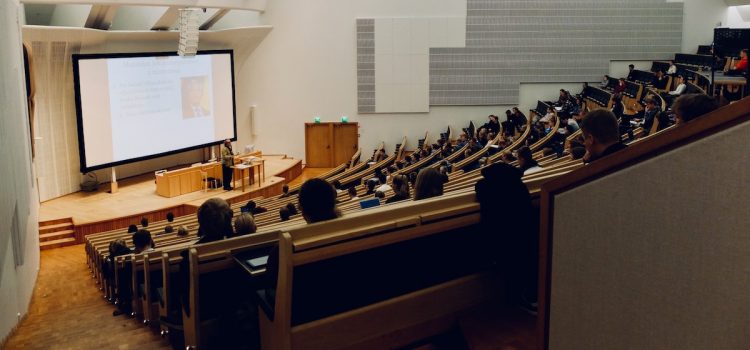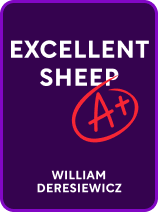

This article is an excerpt from the Shortform book guide to "Excellent Sheep" by William Deresiewicz. Shortform has the world's best summaries and analyses of books you should be reading.
Like this article? Sign up for a free trial here.
Who has access to college in America? How might that access be expanded?
In Excellent Sheep, author and former Yale professor William Deresiewicz makes the case that elite colleges and universities in the U.S. are selective to the point of detriment. He explains how the government, schools, and parents can collectively overhaul U.S. higher education to alleviate the problem.
Continue reading to learn Deresiewicz’s proposed solution.
Expanding Access to College
We’ll begin by examining Deresiewicz’s solution to the first problem of elite schools’ selective, exclusive admissions criteria. He proposes that Americans should replace their current system of higher education with a less-exclusive one that no longer privileges upper-class children. We’ll describe Deresiewicz’s recommendations for how the government, institutions of higher education, and parents can play a role in expanding access to college.
Government Role: Address the Roots of Disparities in College Access
The author claims that high school students will have equal opportunities to access high-quality education if the government equally funds all public schools. Because public schools are funded by property taxes, students living in lower-income communities attend underfunded schools and graduate from high school less prepared for college. Equalizing K-12 school funding would ensure all students attend high schools that prepare them for college.
| Would Equalizing K-12 Funding Equalize Access to Elite Colleges? Deresiewicz doesn’t specify whether this reform would equalize students’ access to college in general or particularly to elite colleges. Let’s explore if the latter would be true. Equalizing school funding could make students from lower-income and higher-income communities less distinguishable from each other on some application criteria, such as standardized test scores and extracurriculars. This would equalize the admissions process to some degree. However, other criteria—such as students’ social identities—reflect students’ family wealth as well as the wealth of their community. These criteria would still reveal students’ socioeconomic status, opening up the possibility for admissions teams to prefer wealthier students. In the next section, we’ll further explore the author’s ideas on reforming these admissions criteria as well. |
College and University Role: Overhaul Admissions Criteria
Next, Deresiewicz argues that elite schools should replace their admissions criteria with criteria that no longer privilege the students of wealthy families. This reform would increase non-affluent students’ access to these schools, opening doors for them to become leaders with the power to reduce social inequality. Deresiewicz recommends college admissions teams overhaul their admissions criteria using three specific methods.
Method 1: Eliminate Bias Toward Wealthy Students
First, he recommends that admissions criteria show no bias towards students with social identities associated with wealth. This includes legacy students.
(Shortform note: As previously noted, in recent years, some elite schools have eliminated their preference for legacy students to make their admissions process more equitable. However, a law professor argues that when elite schools eliminate their preference for legacy students, they lose funding. This is because legacy students’ families often pay full tuition and later become donors. He warns that limited funding could reduce the quality of elite schools’ academics.)
To replace criteria that privilege wealthy students, the author recommends schools instead show a preference toward students with personality traits that signal they’ll be strong citizens and changemakers, such as students with original, creative ideas.
(Shortform note: What criteria could college admissions officers use to spot students who are original thinkers? One option is to ask high school teachers to evaluate their students’ creative abilities. Researchers have found that creativity ratings reflect no bias towards any particular racial group, suggesting that these criteria could both provide a window into students’ capacity for original thought and reduce racial stereotyping in the admissions process.)
Method 2: Use Class-Based Affirmative Action
Second, Deresciewicz claims that elite schools should increase equity by replacing their race-based affirmative action with class-based affirmative action. While race-based affirmative action increases racial diversity, he claims that it doesn’t significantly increase the socioeconomic diversity of the student body. This is because the students of color elite colleges admit typically come from wealthy families.
(Shortform note: Replacing race-based affirmative action with class-based affirmative action may increase campuses’ socioeconomic diversity, but experts warn doing so would create a new problem: reducing those campuses’ racial diversity. This is because the majority of low-income students are white, so increasing their access to elite colleges would reduce spots for students of color. Instead, experts recommend elite colleges increase both their racial and socioeconomic diversity by reducing their preferences for legacy students, who tend to be mostly white and wealthy.)
Method 3: Use Weighted Standardized Test Scores
Lastly, Deresciewicz recommends elite schools overhaul their admissions criteria by replacing regular standardized test scores with weighted ones. Weighted standardized test scores are adjusted to reflect a student’s income level. The author argues this is a better measure of achievement than unweighted standardized test scores, since unweighted scores correlate with family income.
(Shortform note: Since the publishing of Excellent Sheep in 2014, some elite schools have started using a type of weighted standardized test score to increase admissions equity. The nonprofit organization that manages the SAT recently started assigning each test-taker an “adversity score.” This score quantifies students’ poverty level, and the organization sends it to colleges along with their test scores. Adversity scores have helped elite colleges, such as Yale, enroll more first-generation and low-income students.)
Family Role: Stop Giving Your Child an Advantage
Finally, Deresiewicz believes that elite parents have a role to play in improving U.S. higher education. He argues that parents of elite children should stop prioritizing the needs of their kids over those of less-affluent kids. He claims that, when upper-class parents try to increase their children’s chances of getting into elite colleges, they make their children miserable and give their kids an unfair advantage.
| How Should Affluent Families Support Admissions Equity? Deresiewicz doesn’t provide any specific action steps affluent parents should take to support their child’s path to college without prioritizing their needs over those of non-affluent children. A Harvard college admissions resource for families urges affluent parents to support admissions equity through the following actions: Share resources with high school students in less-affluent areas. These resources could include admissions officers’ contact information, transportation to college tours, and test preparation books. This action would increase non-elite students’ access to information that could improve their chances of acceptance at a selective college. Ask high schools to limit students’ extracurriculars. This would reduce the stress students experience when their schedule is overloaded with extracurriculars. If the high schools in question are in high-income areas, it would also reduce the admissions advantage affluent students have over students whose schools offer fewer extracurriculars. |

———End of Preview———
Like what you just read? Read the rest of the world's best book summary and analysis of William Deresiewicz's "Excellent Sheep" at Shortform.
Here's what you'll find in our full Excellent Sheep summary:
- How elite colleges contribute to social inequality and harm students
- The ways that elite schools prioritize profits over teaching
- How governments, schools, and parents can overhaul U.S. higher education





